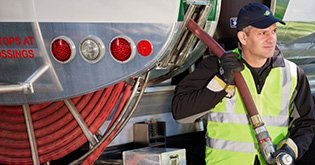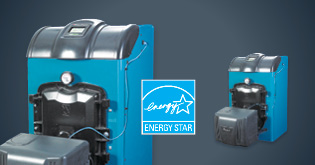Between propane and electric power, propane is the clear winner.

Whether in your business or home, you could save money using propane.
BTUs (British Thermal Units) are a measure of the heating power of a given fuel source. According to the U.S. Department of Energy, propane costs nearly half as much as electricity, which means you’re getting almost twice the heating power with propane.
Yet beyond the cost, using propane for your heating needs benefits so many facets of your life. We’ve put together a comparison of the two fuel sources, so you can see that propane is the better choice, every time.
It’s Cheaper! - As stated above, propane costs are significantly lower than electricity costs for heating — by official estimates, propane is half as expensive as electricity!
It’s Warmer! - Electric systems generally create heat below the average body temperature of 98.6 degrees. Propane systems, on the other hand, generate heat at 120-140 degrees in short bursts, largely to save on energy use costs.
It Lasts Longer! - Propane furnaces can last between 10 to 15 years, while electric heat pumps stand to break down after 5 to 10 years.
It’s More Dependable! - Electric heat pumps are susceptible to power outages, which means you run the risk of losing heat when you lose power. On the other hand, propane gas tanks will keep running even if the power goes out!
It’s Cleaner! - The Clean Air Act of 1990 and the National Energy Policy Act of 1992 recognized propane as a clean alternative fuel source. Studies have shown that propane is significantly less impactful on the environment than other fuel sources.
Additionally, because of its gaseous form, propane doesn’t spill or pool — that means propane won’t seep into water supplies!
It’s Safer! - Propane is one of the safest forms of energy, due in part to regulations and research by the propane industry to create the best possible fuel.
Propane does not combust unless met with an ignition source that reaches 940 degrees, which means when released into the air, it cannot explode.
Propane gas is also not toxic and does not contaminate air or water. It also produces minimal emissions.
It’s Customer Friendly! - Electric power comes from large conglomerate energy companies which often treat customers like a number or account. We at Meenan live where you do — being a Meenan customer means you are part of our family, and we will treat you as every customer should be treated.
Cost breakdowns by appliance.
We’re going to further break down the benefits of propane over electricity, one appliance at a time.
Furnaces
- Propane furnaces pump air at a temperature consistently over 120 degrees, while electric heat pumps generate heat at about 95 degrees.
- Propane furnaces are known to last up to 20 years, while the maximum usage of electric heat pumps is rarely 12 years.
- Propane furnaces are significantly cheaper to repair than electric heat pumps.
Water heaters
- The average savings over electric water heaters is on average $10 a month.
- Propane water heaters typically are about 42 percent cheaper than electric water heaters.
- Over their entire lifespan, propane water heaters are known to save home and business owners over $2000 over their lifespan.
- Propane heats water twice as fast as electricity, meaning a more consistent supply of hot water for you.
Fireplaces (Propane over their wood-burning counterparts)
- Propane fireplaces cost between 40 and 60 percent less per hour than wood-burning fireplaces.
- Propane fireplaces emit almost no emissions, whereas wood-burning fireplaces release contaminants and allergens into the air you breath.
- Propane fireplaces are outfitted with switches, so you can easily turn them off as opposed to worrying about leftover burning embers.
Cooktops and ranges
- Chefs prefer cooking with gas because they offer instant heat and more precise temperature control.
Dryers
- Propane-powered dryers dry clothing significantly faster than electric units — that means you use far less power with a far less expensive power source. Some models are known to provide a 63 percent savings over their electric counterparts.



.jpg?sfvrsn=59b4717f_1)
.jpg?sfvrsn=38eb02bb_5)